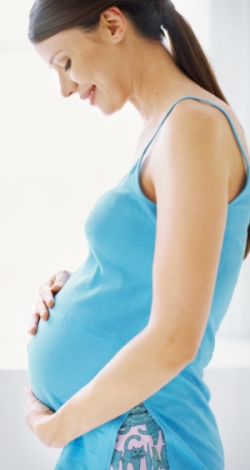Supplements During Pregnancy
Folate
An adequate folate level is recommended for women during pregnancy because it is essential for normal fetal development and lowers the risk of neural tube defects like spina bifida. The World Health Organization recommends that pregnant women get 400 micrograms of folate every day from the time they are thinking about becoming pregnant through 12 weeks of pregnancy.
In the past, several studies have suggested that too much folate intake during pregnancy could be associated with an increased risk of asthma in children. However, more recent research has shown that low folate levels are actually associated with higher asthma risk in children whose mothers have asthma or children with known allergic diseases. It is important for pregnant women to follow the advice of their physicians when it comes to folate supplements, especially if these mothers themselves have a history of asthma.
Can allergic disease be prevented?
We all laugh at strange pregnancy craving stories, but if you have a child with a food allergy, does avoiding food allergens during a subsequent pregnancy make a difference in a possible allergy or asthma diagnosis for the baby?
A recent review of past research found that there is no clear evidence that avoiding food allergens during pregnancy will lower the risk of food allergy for the child. We recommend continuing to eat a variety of foods that are safe in pregnancy and your obstetrician can tell you more about which foods to avoid for safety reasons.
If you are still wondering what else might help to lower the risk of food allergy in your baby, consider an extra vitamin:
Fish Oil
Interestingly, some research has shown that fish oil supplementation during pregnancy and breastfeeding might be associated with a slightly lower risk of food allergy in the babies.
Vitamin D
Several studies in recent years have focused on examining if taking Vitamin D supplements during pregnancy could decrease the risk of allergic diseases in children. In one study, infants whose mothers took 1000 mg of cholecalciferol daily during pregnancy were found to have lower risk of developing eczema (atopic dermatitis) before age 12 months. However, the Vitamin D Antenatal Asthma Reduction Trial (VDAART) clinical trial found that Vitamin D supplementation during pregnancy did not decrease the risk of childhood asthma or wheezing. An overall review of the past studies on this topic did not show any convincing role for Vitamin D supplementation during pregnancy in preventing allergic diseases in infants.
https://onlinelibrary.wiley.com/doi/10.1002/ppul.25680
https://pubmed.ncbi.nlm.nih.gov/29173446/
https://pubmed.ncbi.nlm.nih.gov/33979761/
https://pubmed.ncbi.nlm.nih.gov/32396244/
https://pubmed.ncbi.nlm.nih.gov/35763390/
https://pubmed.ncbi.nlm.nih.gov/35108226/
To The Point
Follow your obstetrician’s guidance regarding folate supplementation and dietary choices during pregnancy. Fish oil supplementation during pregnancy may be associated with a slightly lower risk of food allergy for your baby. It is not clear that Vitamin D supplementation during pregnancy will prevent allergic diseases in infants, though it may play other important roles in mothers’ and infants’ health.
The AAAAI's Find an Allergist / Immunologist service is a trusted resource to help you find a specialist close to home.
1/2/2023